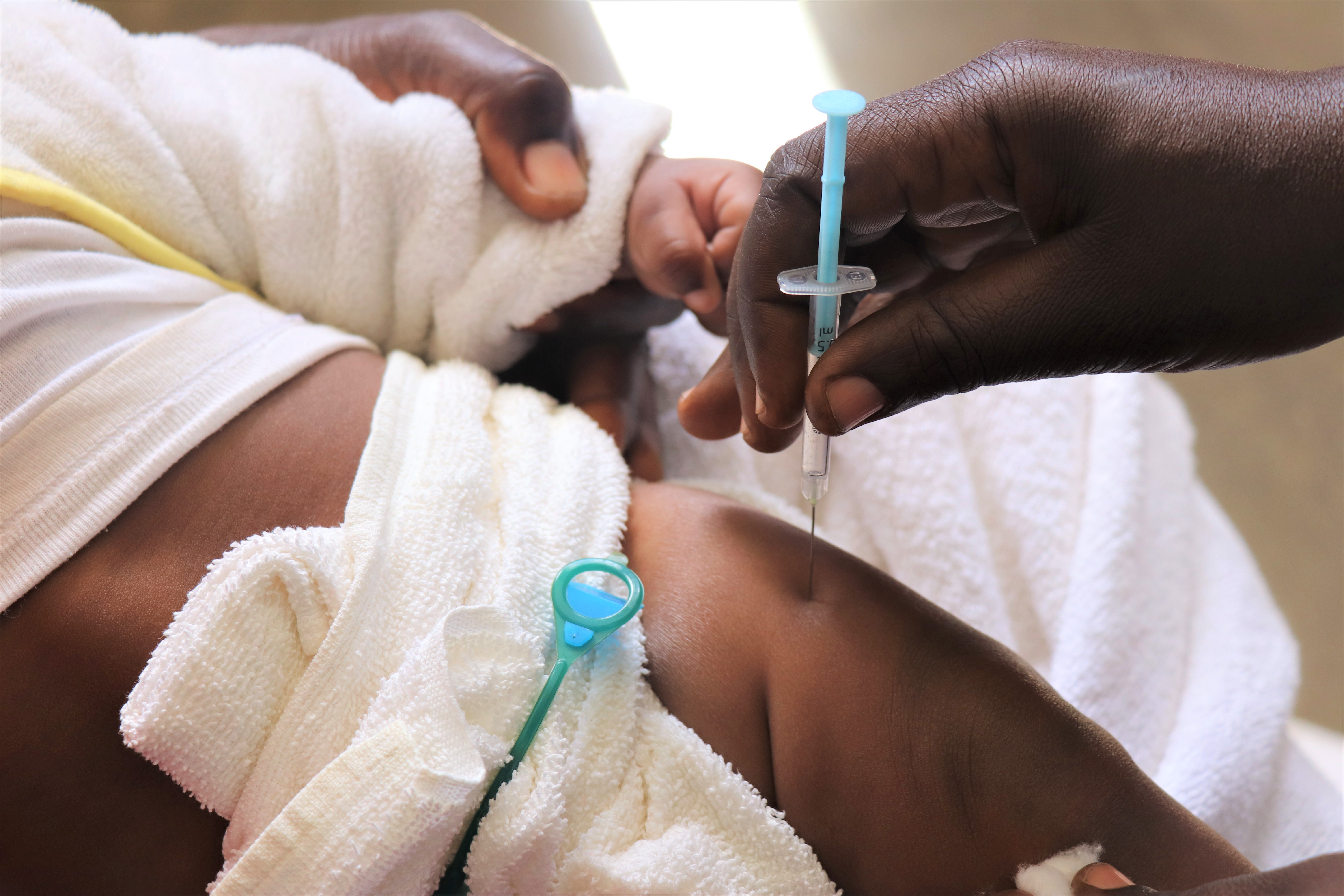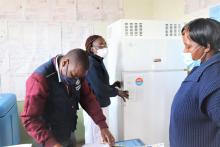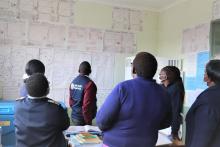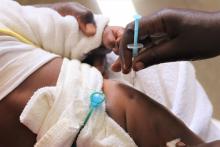Continued delivery of Immunization Services in the context of COVID-19 pandemic

by Tatenda Chimbwanda
Masvingo Province, Zimbabwe – Immunization is an essential health service which may be affected by the current COVID-19 pandemic. Disruption of immunization services, even for brief periods, can result in increased numbers of susceptible individuals and raise the likelihood of outbreak-prone Vaccine Preventable Diseases (VPDs) such as measles. Outbreaks of vaccine-preventable diseases could be catastrophic for communities and health systems already battling the impacts of COVID-19, and substantively increase sickness and fatalities.
In 2019 measles caused more than 6000 deaths in the Democratic Republic of the Congo (DRC), a country which was fighting its largest Ebola outbreak. In Zimbabwe, a number of district hospitals and clinics in Masvingo Province had suspended essential health services as a result of COVID-19. Reasons for initial stoppage of services included healthcare worker fear of contracting COVID-19; a lack of Personal Protective Equipment (PPE), and facilities preparing for upsurge of COVID-19 cases. Communities were also reluctant to use health facilities for fear of contracting COVID-19.
Drawing from lessons learnt in DRC, the Ministry of Health and Child Care (MoHCC), backed by the World Health Organisation (WHO) undertook a supportive mission to Masvingo Province, to provide on the job support for COVID-19 response activities and assess the continuity of essential services provision in the province. The main objective of the essential services support conducted between 26 June and 2 July in Bikita, Chivi, Mwenezi and Chiredzi Districts by MoHCC and WHO was to assess the continuity of essential services provision in the province.
The visit also sought to understand reasons for differences in service provision coverage (using mainly immunization data) across districts. Another objective was to identify best practices especially from high performing districts for use in improving performance of other regions and detect challenges being faced in low performing areas and brainstorm on mitigation measures. Onsite support was provided to Masvingo Provincial Expanded Program for Immunization Officer (PEPIO).
MoHCC, WHO and Masvingo Provincial EPI officer conducted a desk review of immunization performance data from January to April 2020 in the province. It was noted that Bikita, Chivi and Zaka were performing much better than other districts in the province. All three districts had Penta3 coverage above 85%. Districts with very low coverage were Chiredzi with Penta3 coverage of 54% and Mwenezi with Penta3 coverage of 65%. Masvingo and Gutu districts were doing relatively well given the COVID-19 situation with Penta3 coverage rates of 77% and 74% respectively.
Furthermore, MoHCC and WHO visited Mwenezi and Chiredzi districts to understand the challenges being faced, brainstorm on mitigation measures and identify support needed. One of the main reasons for their low performance in EPI was due to health facilities proximity to the new settlements in both Chiredzi and Mwenezi. “Chiredzi district has the challenge of having few health care facilities which are far away from where the people live. Therefore, community outreach is the only effective way. We need to conduct outreaches every month if we are to reach every child in the marginalized resettlement areas with no clinics close by,” explained Mr Leonard Bhasera, District Nursing Officer (DNO) at Chiredzi General Hospital. Hence, targeted outreach services provision in Chiredzi district with more focus on the most severely underserved communities was one of the best practices noted and recommended to Mwenezi as well.
MoHCC and WHO officials went on to visit Bikita and Chivi districts health facilities in order to understand the reasons behind their high performance and to identify best practices and lessons to take and use in other districts nationally. Best practices that were observed include consistent and timely monitoring of performance of immunization services and prioritization of essential services provision in Chivi district. There was also an integration of trainings on routine services with COVID-19 trainings in Chivi district. Strong partnerships and collaborations were also observed in Bikita and Chivi districts.
“The reason why Chivi district hospital has the highest immunization coverage in Masvingo Province is because our nurses were trained on Covid-19 Infection Prevention and Control (IPC) measures and we never stopped vaccinating children. We also took advantage of the food distribution points and used them to encourage mothers to bring their children for vaccination. Most importantly we also spoke to the police in order for them not to restrict people from bringing their children for vaccination and local business supported us with Personal Protective Equipment (PPE) for the community outreaches,” explained Mrs Constance Chiteure, District Nursing Officer (DNO) for Chivi District Hospital.
Concluding the support visit, MoHCC and WHO made key recommendations to Masvingo Provinces’ EPI activities. The recommendations include expanding on ‘my village my home strategy’ in all districts. Another recommendation was for MoHCC HQ to urgently work on availing funding and logistical support for outreach services to avoid further disruption of EPI services. Outlining one of the key lessons learnt from visiting Masvingo Province Dr Maxwell Rupfutse, WHO EPI Focal Point said: “Early involvement of stakeholders, community leaders and communities during challenging situations such as COVID-19 pandemic facilitates building resilience of health systems and enhances continued provision of services.”





